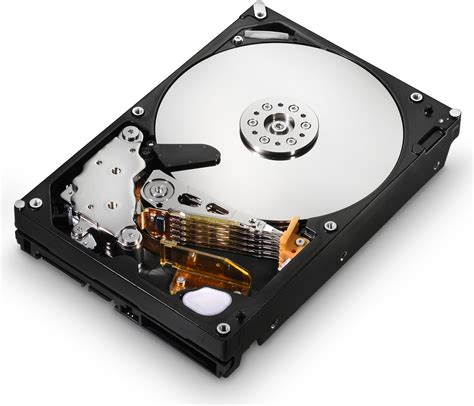[HDDs]: The Unsung Heroes of Digital Storage
Hard disk drives (HDDs) have been the backbone of digital storage for decades, providing reliable and cost-effective data storage for personal computers, servers, and enterprise systems. While solid-state drives (SSDs) have gained popularity in recent years, HDDs remain an essential component of the storage landscape, offering unique advantages that make them indispensable for many applications.
Why HDDs Matter
Capacity and Cost-Effectiveness: HDDs excel at storing large amounts of data at an affordable price. They offer capacities ranging from a few hundred gigabytes to multiple terabytes, making them ideal for storing large media files, backups, and archives. Compared to SSDs, HDDs provide significantly more storage capacity for the same cost.
Stability and Reliability: HDDs have proven to be highly reliable storage devices. They are not affected by power outages or sudden shutdowns, ensuring data integrity. Additionally, HDDs have a longer lifespan than SSDs, typically lasting for several years with proper maintenance.
Lower Power Consumption: HDDs consume less power than SSDs, making them a more energy-efficient option for long-term storage applications. Their lower power consumption also reduces the cooling requirements for servers and data centers.

Benefits of HDDs
Data Longevity: HDDs provide long-term data storage, making them ideal for preserving important data and archives. Their stable mechanical design ensures that data can be retrieved years after it was written.
![[HDDs]: The Unsung Heroes of Digital Storage](https://ts3.mm.bing.net/th?q=%5BHDDs%5D:%20The%20Unsung%20Heroes%20of%20Digital%20Storage)
Capacity Expansion: HDDs can be easily expanded by adding additional drives to a storage system. This allows for seamless scalability and growth of storage capacity without disrupting existing data.
Cost Savings: HDDs offer significant cost savings compared to SSDs. For applications where speed is not a primary concern, HDDs provide an economical solution for storing large amounts of data.
Types of HDDs
There are various types of HDDs available, each designed for specific applications.

| Type |
Interface |
Speed |
Capacity |
| Desktop HDDs: |
SATA, NVMe |
5,400-7,200 RPM |
Up to 10 TB |
| Enterprise HDDs: |
SAS, SATA |
7,200-15,000 RPM |
Up to 30 TB |
| NAS HDDs: |
SATA |
5,400-7,200 RPM |
Up to 12 TB |
| Mobile HDDs: |
USB, Thunderbolt |
5,400 RPM |
Up to 5 TB |
Considerations for Choosing HDDs
When selecting HDDs, several factors should be considered:
Capacity: Determine the amount of storage space required for your application.
Speed: Consider the speed requirements of your applications. Higher RPM drives provide faster data access and transfer rates.
Reliability: Choose HDDs with proven reliability and a solid warranty. Enterprise-grade HDDs offer higher reliability and durability.
Form Factor: Select the appropriate form factor (2.5-inch or 3.5-inch) to match your system's drive bays.
Interface: Ensure that the HDDs are compatible with the available interfaces on your system (SATA, SAS, NVMe).
![[HDDs]: The Unsung Heroes of Digital Storage](https://ts3.mm.bing.net/th?q=%5BHDDs%5D:%20The%20Unsung%20Heroes%20of%20Digital%20Storage)
Use Cases for HDDs
HDDs are used in a wide range of applications, including:
-
Data Storage Backup: HDDs are ideal for backing up large amounts of data, providing an affordable and reliable alternative to tape storage.
-
Media and Entertainment: HDDs provide ample storage for movies, music, and other media content.
-
Surveillance Systems: HDDs are widely used in surveillance cameras to record and store video footage.
-
Cloud Storage: HDDs are a cost-effective storage option for cloud environments, providing high-capacity storage for data archival and backup.
-
Industrial Applications: HDDs are found in industrial settings, such as factory automation and process control systems, where data reliability and integrity are paramount.
Inspirational Stories
Story 1: A small business owner, struggling with data storage, was able to expand their business and increase revenue by investing in a reliable HDD storage system.
Story 2: A photographer, whose livelihood depended on preserving irreplaceable images, found peace of mind with an HDD solution that ensured the longevity and security of her precious work.
Story 3: A university researcher, facing the challenge of storing massive research datasets, discovered that HDDs provided a cost-effective and reliable solution that enabled groundbreaking discoveries.
From these stories, we learn that HDDs not only store data but also empower businesses, inspire creativity, and advance knowledge.
How to Choose the Right HDDs
1. Determine Your Needs: Identify the storage capacity, speed, and reliability requirements for your application.
2. Research Options: Explore the different types of HDDs available and compare their specifications.
3. Read Reviews: Consult reputable review websites and forums to gain insights into HDD performance and reliability.
4. Consider the Warranty: Look for HDDs with a solid warranty to ensure peace of mind and protection against potential failures.
Pros and Cons of HDDs
Pros:
- High capacity and affordability
- Proven reliability and data integrity
- Lower power consumption
- Easy to expand and scale
Cons:
- Slower speed than SSDs
- Mechanical components can be susceptible to failure
- Higher latency and seek times
Conclusion
HDDs continue to play a vital role in the digital landscape, offering reliable, cost-effective, and high-capacity storage for a wide range of applications. While SSDs may dominate for performance-intensive tasks, HDDs remain the ideal choice for scenarios where capacity, cost, and long-term data preservation are paramount. By understanding the strengths and limitations of HDDs, you can make informed decisions that will meet your specific storage needs.
